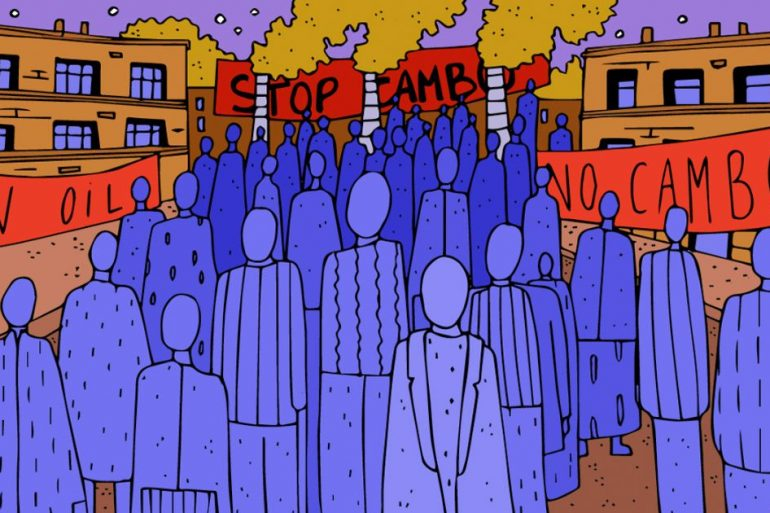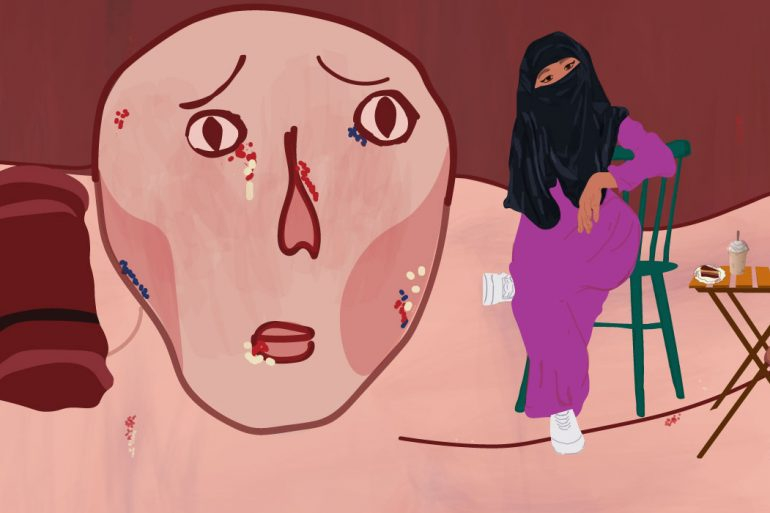Jack Turley and I share a few things in life. We’re both in our mid-twenties, we’ve both taught English as a foreign language in China, and we’ve both been diagnosed with Ulcerative Colitis (UC) – an inflammatory bowel disease that affects the large intestine and rectum. We were also both eventually fitted with stoma bags as a treatment for this.

Colitis is a chronic illness – a patient can, at best, expect to live in remission, where the disease lies dormant. However, these periods are interspersed with ‘flare ups’, where we experience stomach cramps, bloody diarrhoea and a whole host of other symptoms and secondary effects. Jack remembers, “my little brother following me into the toilet and shit-shaming me!” The cause of Colitis is unknown, and it is currently incurable. We’ve both undertaken the most extreme treatment available on the NHS and have had major surgery to remove our entire colons.
It was not a decision that either of us came to lightly. We had exhausted the entire list of medication that was available to us before our colorectal surgeries. This involves being given an ileostomy, meaning we no longer emitted waste the normal way, but through a stoma on our abdomen into a disposable adhesive back that is worn on the belly.
Jack’s stoma bag is permanent; “My surgeon didn’t recommend reversal surgery for me. He said if I was really hating the stoma bag I could have tried the j-pouch, but with the 80-ish% success rate of j-pouch surgery, he thought I was more likely to be in the 20% that don’t have a good time with it.”
Some of the risks of surgery are impotence for males and infertility in females, and for surgeries where a stoma is a permanent solution, the anus becomes completely disused – something which also hugely affects people’s sexual relationships. The support we were given for the sexual implications of living with a stoma is something we both felt was lacking. A stoma nurse told Jack, “‘Look, we can talk about this when you’ve got a girlfriend’. And I was sort of thinking, well maybe that would be quite a key element in getting a girlfriend!”
I was diagnosed with Colitis when I was nine and had my first surgery when I was 16; Jack was diagnosed when he was 22 and had his first surgery at 23. There is a lot of time spent sitting around on toilets and in hospitals when diagnosed with Colitis, and to pass this time – and help us cope – we began documenting our diseases in the form of blogs.
For both of us, publicly sharing our experience of living with stoma bags became instrumental in avoiding lengthy and repetitive explanations about why we had them and what it involved.Instead, it allowed us to get on with our lives. Jack tells me about a date he once went on where, as a teacher, he ended up, “spending all day teaching science and the whole evening teaching biology too.”
“I feel like the writing was my way of talking about it because I often found it quite awkward,” says Jack. He recently collated his series of blog posts into a book, Sh*t Happens: Around the world in 80 dumps a day, the content of which is laced with real-life anecdotes that are at times heartbreaking, often hilarious, and always matter of fact. When submitting Sh*t Happens to literary agents, Jack received some good feedback, but it didn’t lead to a contract, with one agent pointing out: “You’re not going to see that title up in Waterstones.”
Undeterred, he decided to set up his own publishing house: Track Press Books; “An environmentally and community friendly small publisher, committed to sharing meaningful, long-lasting fiction and essential non-fiction, with a particular focus on mental health themes and chronic illness awareness.”
Reading Sh*t Happens brought up all of the intricacies and nuances that come with living with an IBD, which are often left unsaid, so Jack and I spent a lot of our Zoom call sharing experiences , him recalling both those in his book and new ones he had collected after publication.
One of these new stories was from a colleague who recalled being “on a school trip to Portugal for a football tour on a coach with the kids and one of them swore through the window to an opposition fan. They surrounded us, and we ended up having to get a police escort out of the football ground. At this point, my bag started leaking. Kids were sat behind me arguing about who had farted! Only the teacher sitting opposite me knew what was going on. All I had was a tissue that I stuffed in to stop it leaking, but then needed to get rid of it, so I just had to throw it out the window. I then realised that I had basically thrown a shitty tissue at the police who were trying to get us out safely!”
I had leaking experiences too – it happened at work once or twice, when I was waitressing during college, and before I had grown the confidence to be completely open. When it happened, I decided my only option was to grab my car keys and get out. In hindsight it was not my only option; though it would have taken some courage, I could have dealt with the mishap and continued at work. Leaks almost always come on gradually – no one else needs to know about them.
However, the leak wasn’t the hardest part of the situation, rather it was the shame I felt – a valid but unnecessary part of having an IBD or a stoma bag. Jack is currently experiencing a stoma retraction, where the stoma withdraws, meaning leaks can be more frequent. He’s counting down the days until another surgery, but until then is suffering from a lot of pain due to the skin around the stoma, which can become irritated, essentially like a nappy rash. “It feels like someone is holding a flame to your stomach,” he explains.
Even so, he managed to complete the Great Northern Run recently: “I had this idealised view of the finish line after the marathon, but instead I was feeling so rough for a couple of months before that I literally did no training. I bought a pair of running shoes and wore them once before I did the run”. On top of this, he is also involved in his school’s diversity society, where he begins his talks by explaining, “I might not look like the most diverse member of staff, but under law I am disabled.”
I have since had a proctocolectomy with ileal pouch-anal anastomosis (j-pouch surgery) meaning I no longer use a stoma bag and go to the toilet normally, but still more frequently than most people. I have begun identifying as having a disability in job interviews and using the Radar Disabled Toilet Key when I need to, because having easy access to something as simple as a toilet means my symptoms are just symptoms, not problems. As Jack says, “It’s better than shitting yourself there and then!”
Something Jack and I are aware of is that if we have children, they are more likely than the rest of the population to also suffer with Colitis, but, as Jack says: “If I think my life is worth living then theirs would be too.”
In his book, Jack also covers the effect that the disease has on mental health – he details the points at which he was left feeling suicidal and depressed, something he had never experienced pre-colitis. And how, as a chronic illness sufferer, you are consumer target no. 1 for alternative medicines: “Einstein is famous for saying God doesn’t play dice but there’s so much probability at play – we can’t predict everything and understand everything.” As a science teacher, he believes that there are likely a combination of factors at play, which contribute to the disease’s cause, such as pollution, diet and genetics.
The relentlessness of Colitis – and the powerlessness felt in the face of its incurability – means one of the only things that someone diagnosed with it can do is communicate their experience. Having conversations with people who are as courageously honest as Jack does a whole lot to alleviate our anxiety by removing the isolation of individual experience. Finding a cure or a cause for Colitis is dependent on medical experts but destigmatising and erasing the shame that surrounds its symptoms is one thing we are capable of.

See more of Anna’s art on her website.
Subscribe to shado's weekly newsletter
Exclusive event news, job and creative opportunities, first access to tickets and – just in case you missed them – our picks of the week, from inside shado and out.















